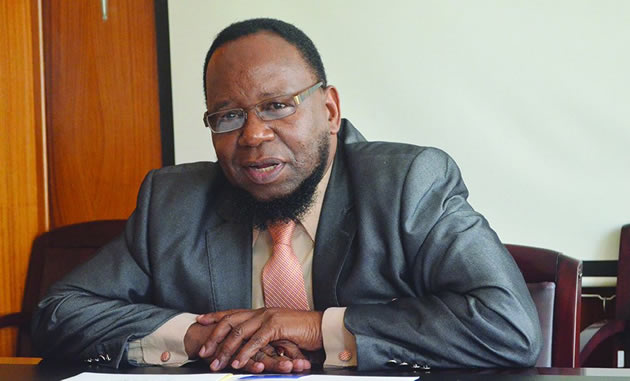2016: Education sector set for new beginnings

Christopher Farai Charamba Review Correspondent
The new academic year has officially begun with many young minds eager to receive what is arguably the best education in the region and quite possibly in Africa. As educators, students and even parents gear up for the 2016 school year, the Ministry of Primary and Secondary Education will begin rolling out its curriculum changes in the education sector.
Speaking to journalists, Primary and Secondary Education Minister Dr Lazarus Dokora pointed out that the new curriculum would be introduced in phases. This is certainly a good idea and approach by the ministry as it will give time to effectively implement the changes and allow for any teething concerns to be addressed sufficiently.
Changes to the curriculum aim to adjust and align existing education practices with emerging national and global trends. As such the shifts in the new curriculum will be made from content-based to competency-based curricula with a strong focus on learners’ capacity to apply knowledge and skills in practical ways.
Government has primed the primary and secondary school curriculum for needs-driven education to prepare learners for life and work.
This is in line with the call for Zimbabweans to move towards Science, Technology, Engineering and Mathematics (STEM) courses advanced by Higher and Tertiary Education, Science and Technology Minister Professor Jonathan Moyo last year.
In addition to STEM courses, vocational training, humanities and heritage studies are other subjects that the new curriculum seeks to prioritise and promote.
According to Dr Dokora, phase one, which begins during the course of this year, will see efforts directed to infrastructure development, teacher capacity and internet connectivity at schools, among other endeavours.
He added that; “Another area in phase one is planning and promotion of non-formal education. Thousands of people, if not millions, want education; either to get a basic education or to pick up a skill that will help self-actualise.”
In introducing changes to the curriculum, infrastructure development and teacher capacity are critical aspects that need to be handled expertly to ensure that schools are well-equipped to handle the changes.
Without proper infrastructure not only do schools run the risk of compromising on the quality of education provided but it could set a terrible precedence for students advancing to the next level of their education.
Dr Dokora also mentioned the need for internet connectivity in schools. In the Information Age that one currently resides in, internet connectivity is fast becoming a need and, as some might argue, a basic human right.
Knowledge and information are power and the fact that the internet holds a vast collective of information means that everyone should have access to this critical source as it can play a pivotal role in human development.
In this regard, the Ministry of Information Communication Technology and Postal and Courier Services should partner with the Ministry of Education to ensure that schools have access to internet connectivity as well as well-equipped computer facilities.
One is not naïve to the fact that Zimbabwe is facing economic hardships that have left the Government with scant resources. However, it is important to ensure that local schools are moving at the same pace as their international counterparts.
Internet service providers such as Zol and TelOne should exercise their corporate social responsibility by assisting Government to bring internet to local schools.
One important pronouncement that Dr Dokora made was that the ministry “will continue with the deepening of the teacher education programmes and we will want to publish some of our specialised teacher education journals and some research outputs from teachers”.
This is particularly important as with developing technologies and practices it is important that Zimbabwean teachers are up-to-date with the various trends in education and technology so as to fully equip their students to be competitive on a global scale.
CEO of the Teachers’ Union of Zimbabwe Mr Manuel Nyawo said; “It must be noted that while it is prudent and worthwhile that changes to the school curriculum are being made this year, it must never be forgotten that there are challenges linked to it.
“The question of resources immediately comes into play as it is common knowledge that the country’s economy is under-performing. A lot of material and financial support is needed in order to fully and adequately implement this new curriculum.”
Mr Nyawo is certainly correct that financing such a mammoth project will be a great challenge for the Government and an aspect that should not be overlooked. The risk of launching a curriculum change without adequate financing is that the programme will suffer a stillbirth or fail to be completed.
He added that; “It must be noted that educators as implementers of STEM subjects are well equipped in terms their knowledge base of the subjects but the challenges hinge on lack of resources in the form of teaching and learning equipment, and sometimes proper teaching environments for these subjects.
“It is important for Government first to address these technical challenges before they can fully implement the demands of the new curriculum to avoid short-changing the vulnerable children. However, Government should continue engaging private-public partnership arrangements in order to overcome some of these challenges.”
According to Dr Dokora, Government plans to source funding through loans, building levies as well as bonds.
Schools should also be tasked with finding innovative ways of raising funds to assist the Government particularly where infrastructure is concerned.
Businesses can also fulfil some of their CSR objectives by assisting this Government initiative.
Another avenue through which funds can be raised is through alumni associations. Alumni of local schools should play an active role in the development of their former schools.
Established alumni associations play a key role in the upkeep and growth of schools. Former students although not obligated to, should show support for the place that contributed to their development and give back in whatever manner they can.
The 2016 academic calendar will certainly be a challenging one for schools and particularly the Ministry of Primary and Secondary Education. As such, it is key that from the onset educators and policy makers are in tandem with the direction in which they are going.
While the ministry has again made it clear that no child should be sent home for non-payment of fees, both parents and the ministry should know that schools need finances to adequately fulfil their duties to students.
As such parents should fulfil their obligation to pay school fees to guarantee that their child receives the best possible education. The ministry should also make sure that enough funding is availed to schools for them to meet the demands of the academic curriculum.
With the right level of focus and organisation, phase one of the curriculum change can be a great success and form a good foundation for phase two which is set to come into effect in 2017.







Comments